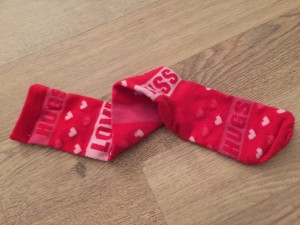
An Excerpt from “The Immersion Project”
Spend any time on social media and you will no doubt be familiar with the Machiavellian language and imagery woven into the visual fabric of your views or news feeds. A personal favorite is the ten-question, psychological quiz. In theory, you can reveal the answer to just about any question ranging from “Who is your 80’s Movie Husband?” to “What is Your True Calling?” A brilliantly simple tactic. Simply bait someone’s ego to lure them to your virtual playground and pummel them with ads. Sure, I’ll bite. I’m no stranger to the device, and in many ways, I am in awe of it. It takes precious little to grab someone’s attention, and yet most of us analyze this process to death when implementing it for our own purposes.
Let me shine the spotlight on a prime example of the power of a simple question when directed inward, from none other than the aforementioned tactic of the short psych quiz. This gem came from a version of the “What is Your True Calling?” category. The question: “Would you rather be Rich, Famous, Influential, or Happy?” Now this just irritated me. These are not like entities. Do you remember the Sesame Street short, “One of these things is not like the other. One of these things just doesn’t belong.”? Apples and oranges. Is this a trick question? Did the creator intend to force a dilemma or was it, as I truly suspect, someone’s genuine understanding of how we define happiness?
Let’s break it down. “Rich”, “Famous”, and “Influential” are not states of being. “Happy”, however, is. It is the one thing that comes from within and the thing we have the hardest time understanding, creating, and maintaining. We spend a tremendous amount of time trying to figure out what will make us happy, and we think of it just that way, “make” us happy. It’s something…out there; we just need to find it, like the missing sock from the dryer. Find it and we have a pair. Movies, books, friends, the media, all try to tell us that it’s out there, that thing that will “make” us happy. That concept makes happiness one of the easiest things to sell via quick fixes in the form of drugs, products, and attractive ideologies. They even weave it into story constructs to make us believe that it’s not only possible to find happiness out there, but that it only exists out there. These same sales vehicles also facilitate the belief that we should be able to find happiness this way ourselves.
You may have worked like a dog to be rich, but what part of that scenario is truly yours? Money can be lost, but the experience is a part of you. When someone asks you how you are, do you say, “Rich?” Again, it’s not a state of being. It’s a condition you create by way of your state of being, your state of mind. “Rich”, “Famous”, and “Influential” are popular examples of what many think will make them happy. If you choose “Happy” as the answer to the question of preference, what condition are you choosing? Why are you happy? It’s where many error out and default to one of the conditions. We like reasons. The nebulous “Happy” populates our brains with everything from the mentally ill lunatic wandering the streets not knowing enough to hate his situation, to the stereotypical hippie type who owns next to nothing and whose perpetual smile is fueled by drugs. If you are choosing “Happy” over the other options, are you then choosing not to be rich, famous, or influential? That’s what the question would imply, and that’s why it irritated me to no end, at first.
I decided to ponder this question and challenge myself to answer it. Whether deliberate or inadvertent in phrasing, I could not deny the value if truly analyzed. For many, happiness is the end result, not a starting point, and certainly not something you feel along the way to reaching your goal. Some feel they must earn happiness. Others believe there is a circumstance that will result in happiness. Few actually believe that happiness itself enables you to reach your goals. So then, how does one start out with happiness? It’s a backward theory for our media-trained mind…..
